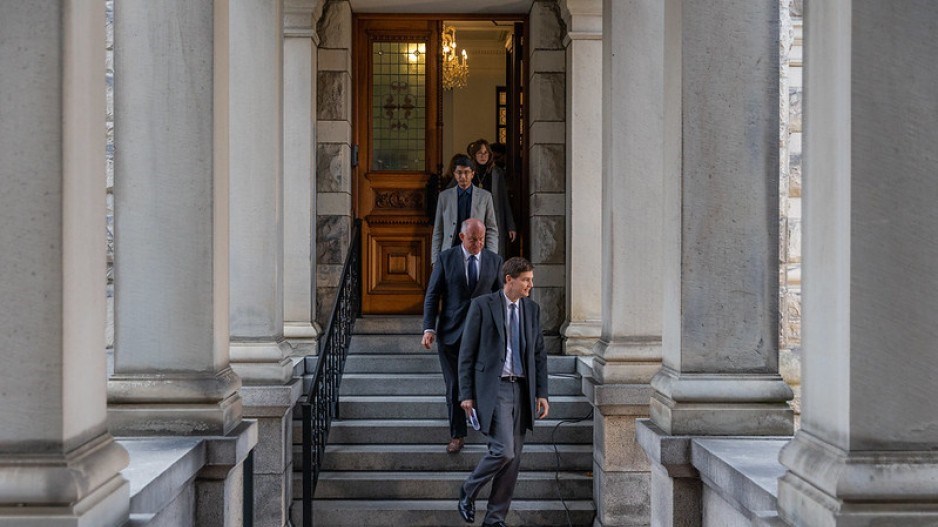There’s an old adage buried deep within very serious political science textbooks that goes something like this: When you got mo’ money, you got mo’ problems.
The B.C. NDP government has been learning that the hard way the past few weeks, as it struggles with the unexpected headaches that come from spending a windfall surplus of more than $6 billion by March 31.
There’s a big ticking clock over the whole venture, because whatever money isn’t spent by that date, the end of the fiscal year, vanishes onto debt repayment.
With affordability concerns rising, and a potential recession on the horizon, Premier David Eby has said he’d rather spend the surplus to help people now, than roll it over onto debt repayment. So, his government is in a race to blow as much money out the space lock door as quickly as possible before the deadline hits.
It sounds like an enviable problem: Too much money, and not enough time to spend it. And, in the grand scheme of potential headaches a government can have, it’s certainly not the worst.
But it also presents its own unique challenges. The spending bonanza has come into direct conflict with the fundamental rule that money spent by a government must be debated in, and authorized by, the legislature.
B.C. MLAs took around 40 hours the past couple of weeks doing just that for $2.7 billion of the surplus. They had questions like: Where is the money going? How will it be spent? What outcomes will it achieve?
Unfortunately, the Eby administration had been moving so quickly to get the money out the door by deadline that, in several cases, it didn’t have answers.
Water, Land and Resource Stewardship Minister Nathan Cullen had to redirect questions back to the premier and finance minister, admitting the idea to spend $100 million on watershed security came from them, not him.
A similar fate befell rookie Agriculture Minister Pam Alexis, who was reduced to reading her own press release and mandate letter into the record when asked for details about spending $111 million in surplus cash for her ministry.
That’s not really how our system is supposed to work.
But it raises some interesting questions about whether we could reform B.C.’s financial rules to do better in the future when a government is in the fortunate situation of an unexpectedly large year-end surplus.
For example, why can’t the B.C. government can’t carry some surplus money forward into the next year, and then spend it at a less rushed pace in the future?
Or, why can’t it park some of that surplus in a special fund off to the side, and then use that to pay for programs and services during deficit years in the future?
There’s nothing technically stopping the government from doing this. But it would be frowned upon by the internal comptroller general, the external auditor general, the federal government and international credit rating agencies – all of whom expect the province to follow standard 12-month accounting rules.
Still, the idea is not without precedent.
Alberta has its Heritage Savings Trust Fund, which is intended to take a slice of any surplus annually from the province’s natural resource revenues and store the money off the books so it doesn’t roll onto the debt. The fund can then be used to finance loans, building projects and other provincial initiatives, as well as generate investment income.
The previous BC Liberal government tried something similar in 2013 with the LNG Prosperity Fund, which was supposed to be a stockpile for $100 billion in profits from a future liquified natural gas industry. Those profits have yet to materialize.
Maybe the idea of an all-purpose provincial surplus investment fund is worth re-examining.
At the very least, it could give future governments of all stripes a better option than a mad-dash scramble to spend cash in the final weeks of the fiscal year.
Rob Shaw has spent more than 15 years covering B.C. politics, now reporting for CHEK News and writing for Glacier Media. He is the co-author of the national bestselling book A Matter of Confidence, host of the weekly podcast Political Capital, and a regular guest on CBC Radio.



